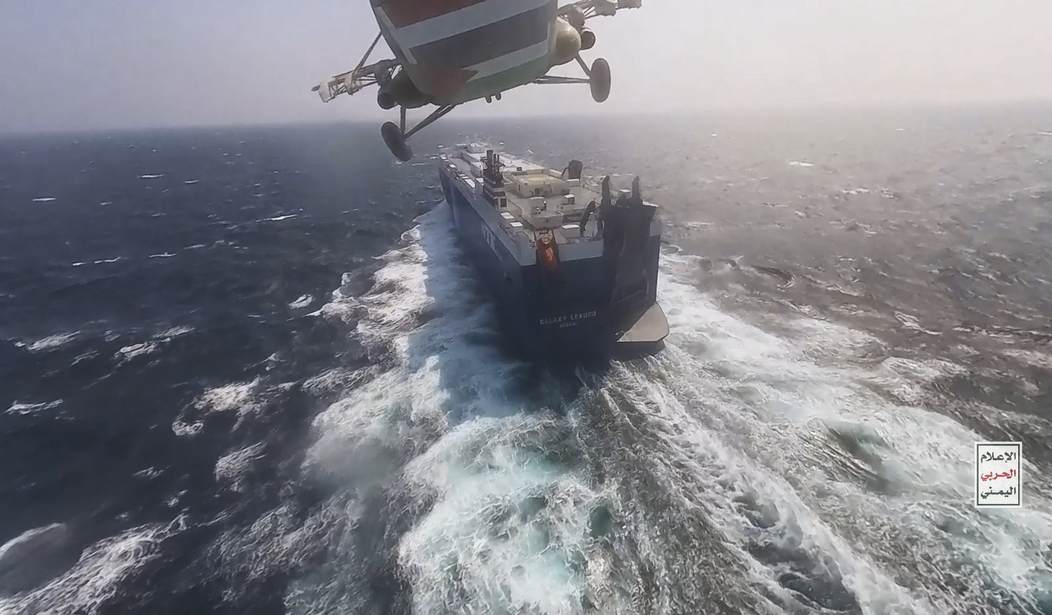June 20 marks the official start of summer. This week is also when pretty much everybody seemed to agree that Presidentish Joe Biden is losing the war that Yemen's Houthi rebels are waging against Red Sea shipping.
Responsible Statecraft's Giorgio Cafiero asked — rhetorically, I'm forced to presume — on Monday, "Are the Houthis winning in the Red Sea?"
"Yemen’s Ansarallah, commonly known as the Houthis," began a missile and drone war against global shipping in the Red Sea last year, wrote Cafiero, as their "way of supporting the Palestinians in Gaza."
How's it going?
"Clearly, there has been some damage [to Houthi targets], but not at a significant level; the Houthis have suffered some losses, but they retain the ability to obstruct maritime shipping in the Red Sea," the University of Ottawa's Thomas Juneau told Cafiero. The joint U.S./U.K. naval efforts, "which have cost the U.S. some $1 billion according to a new intelligence report, have ultimately failed to deter Ansarallah, which continues firing missiles and drones at vessels off Yemen’s coast."
It's a humiliating performance by the two greatest naval powers of the last 300 years, and it's because of weak leadership from Biden. As Navy milblogger CDR Salamander put in on X yesterday, "We have over 2,000 years [of] written record — remarkedly consistent given the turnover of empires & technology — of how to successfully eliminate piracy." And yet, the White House "decided to ignore that and only do part of the recipe but expect the same result."
On Friday, U.S. intel officials admitted that "Houthi attacks on commercial vessels in the Red Sea led to a 90 percent decline in container shipping through the area between December and February."
This is no small matter, either. "Some 7 million barrels of crude oil and products transit the Red Sea daily, compared to 18 million barrels that transit the Strait of Hormuz," CNBC reported back in January. Or at least it used to. "Global crude oil and oil products shipments taking the long route between Asia, the Middle East and the West is up 47% since attacks began on vessels using the shorter Red Sea route," according to a Reuters report.
Recommended: Another Fast Food Chain Is in Serious Trouble
As an unapologetic booster of Western Civilization, I'd remind you with all the bitterness I can muster that the Suez Canal was built by Westerners to serve Western interests, and now we can barely use it, thanks to medieval pirates — the likes of which we used to know how to deal with.
But much worse than the economic impact — which isn't felt here in the U.S. nearly as much as it is by our European allies — is how Biden's fecklessness affects strategic calculations in places much more important than the hills of Yemen.
If we have a CINC — we do have a CINC, don't we? — unwilling to commit the correct force to defeat Yemeni tribesmen disrupting the global trade we rely on, what could he be expected to do when Beijing challenges our position in the western Pacific?
Last year, U.S. Army Maj. Kyle Amonson and Coast Guard Capt. Dane Egli (ret.) published a paper examining "Beijing’s Calculus for Invading Taiwan by 2030" and concluded that "the PLA [Chinese military] will be prepared by 2027" and "will likely take steps to realize these ambitions by 2030."
Indecisive action against small foes like the Houthis invites aggression from larger foes. Beijing is watching, measuring, and counting on four more years of indecision from Joe Biden.










Join the conversation as a VIP Member